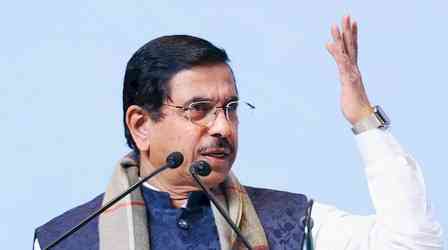Overall warming to increase, number of heavy rainfall days to increase in NE: study
A study about climate change projections for the northeast Indian states on Wednesday indicated an overall warming of both summer and winter minimum temperatures, an increase in the number of rainy days, and an increase in the number of heavy rainfall events across almost all the districts of the region.

New Delhi/Bengaluru, June 15 (IANS) A study about climate change projections for the northeast Indian states on Wednesday indicated an overall warming of both summer and winter minimum temperatures, an increase in the number of rainy days, and an increase in the number of heavy rainfall events across almost all the districts of the region.
These are the findings of "District-Level Changes in Climate: Historical Climate and Climate Change Projections for the North-Eastern States of India" by the Centre for Study of Science, Technology and Policy (CSTEP), a Bengaluru-based think tank.
The study projects changes in temperature and rainfall patterns in Arunachal Pradesh, Assam, Manipur, Meghalaya, Mizoram, Nagaland, Sikkim, and Tripura over the next three decades (from 2021 till 2050) and compares it to the historical period (from 1990 to 2019).
It analysed two representative scenarios: first at moderate emissions, what in technical terms is called as RCP 4.5, and second, for high emissions (RCP 8.5). There are four RCPs, the Representative Concentration Pathways, each of which is a greenhouse gas concentration trajectory adopted by the Intergovernmental Panel on Climate Change (IPCC), used for climate modelling in IPCC reports.
Stating that historically (1990-2019), temperature and rainfall have increased, and rainfall variability is high across all the northeastern states, the important findings from the study includes that there is an overall warming of both summer and winter minimum temperatures, an increase in the number of rainy days (more than 2.5 mm rainfall per day), and an increase in the number of heavy rainfall events across almost all the districts of the north-eastern states.
It also found out that the summer maximum and the winter minimum temperatures are projected to increase by 1 degree Celsius to 1.5 degrees Celsius under the RCP 4.5 scenario and 1 degree Celsius to 2 degrees Celsius under the RCP 8.5 scenario.
The winter minimum temperature is projected to increase largely by 1 degree Celsius to 1.5 degrees C under the RCP 4.5 scenario and 1 degree Celsius to 2 degrees Celsius under the RCP 8.5 scenario in a majority of the districts of north-east India.
The study also said that the number of rainy days is projected to increase in the 2030s in all the northeastern states compared to the historical period. The increase is by 1 to 24 days under the RCP 4.5 scenario, with the maximum increase projected in Sikkim and a minimum increase projected in Assam. The increase is by 1 to 22 days under the RCP 8.5 scenario, with the maximum increase projected in Sikkim.
An increase in high-intensity (51-100 mm per day) and very high-intensity (more than 100 mm per day) rainfall events are projected in the 2030s across all the districts of northeast India compared to the historical period.
It also showed a decline in rainfall deficient years projected in the 2030s across almost all the districts of north-east India compared to the historical period. The decline in rainfall deficient years is by 1 to 4 years out of 30 years under the RCP 4.5 scenario and 1 to 5 years under the RCP 8.5 scenario in the various districts of north-east India.


 IANS
IANS 










